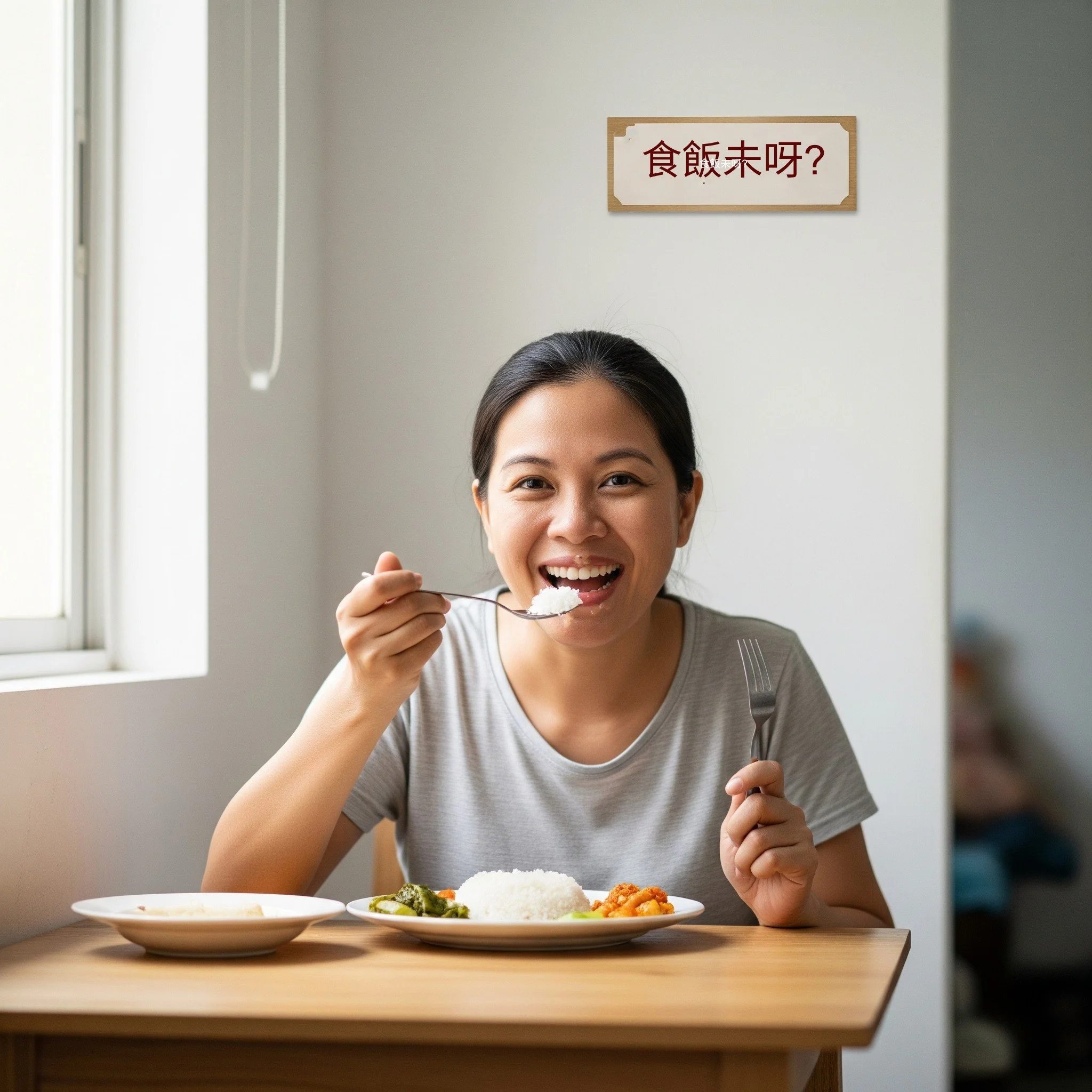Give us this day our daily RICE!
食飯未呀?
The Importance of Rice to Filipinos: A Guide for Hong Kong Employers
“I FEEL HUNGRY” - Food is a common flash point between HK employers and their helpers. If you don’t want to read the rest of the article, here is the simple solution. Buy her a rice cooker and a bag of rice every month. Problem solved. You can stop reading.
Rice is far more than just a staple food in the Philippines—it is woven into the fabric of daily life, tradition, and family for millions of Filipino people. For Hong Kong employers, especially those of Chinese background who employ Filipino workers, this should not be difficult to understand. One of the first greetings I learned when studying Chinese was: “Sihk faahn meih?” 食飯未呀? In modern HK with our busy lifestyles, rice is not as important to our diet as it used to be. BUT for Filipinos it is VERY Important, just as important as it was to a Chinese living 100 years ago. Understanding the role and meaning of rice can help foster harmonious relationships and minimize misunderstandings at home.
Why Is Rice So Important to Filipinos?
Cultural Staple: Rice is the centerpiece of Filipino cuisine. For most Filipinos, a meal is not truly a “real meal” without rice—even if the main dish features meat or vegetables, rice must be present.
Daily Sustenance: Many Filipinos eat rice for breakfast, lunch, dinner, and even snacks. It is filling, affordable, and can be paired with almost anything—meat, fish, vegetables, or even simple condiments during tough times. They often don’t feel full without rice.
Symbolic Value: Rice is deeply tied to Filipino identity. It brings families together at mealtimes and is also present in important life rituals, festivals, and celebrations. Offering rice is seen as an act of hospitality and respect. Withholding rice is seen as an uncaring act.
Economic Importance: For lower-income families in the Philippines, rice may be the only food available. It fills the belly and keeps hunger at bay—a necessity for many who work hard and send money home.
Adaptability: Aside from steamed rice, Filipinos enjoy rice in many forms: porridge (“lugaw” or “champorado”), special cakes (“biko,” “suman”), and as accompaniments to savory dishes.
Common Food Conflicts in Hong Kong Homes
Food is a common topic of confusion and disagreement between Hong Kong employers and Filipino helpers. Here’s why:
Meal Frequency: Hong Kong families often eat three meals a day, while many Filipinos are used to eating five to seven times daily, including snacks and afternoon tea.
Taste Preferences: Filipino helpers may find local foods unfamiliar, plain, or lacking. Sometimes, helpers receive food that isn’t fresh or nutritious, while employers think it is sufficient.
Food Allowance vs. Provided Food: When the contract stipulates ‘food provided,’ both parties may have different expectations. Employers may believe offering three meals is enough; helpers may expect snacks, extra rice, or the flexibility to choose familiar foods.
Reluctance to Speak Up: Filipino helpers are often shy to voice their needs or express hunger, fearing it may upset their employer or seem disrespectful. At the same time however, they will feel SHAME if you don’t give them enough food. They think “I work so hard all day, and my employer doesn’t even give me enough food to eat!”
Simple Solutions to Resolve Food and Food Allowance Conflicts
Open Communication
Discuss food preferences and arrangements openly during the interview. Ask your helper what foods she likes and explain household food routines.
Make expectations clear about what foods are available, how meals and snacks are handled, and what is off-limits without permission.
Respect Dietary Choices
If providing food, respect your helper’s need for rice. Consider stocking extra rice and a few familiar Filipino ingredients. This small gesture can make helpers feel welcomed and cared for.
If you are unable to cater to her food preferences, explain the limits kindly and consider alternatives.
Consider the Food Allowance
Understand the current government standards: As of September 2024, the food allowance for helpers in Hong Kong is HK$1,236/month.
If giving food allowance instead of meals, provide it at the start of the month. Let your helper have the freedom (and responsibility) to buy her own food, which often helps avoid conflicts over food choices.
Another alternative is simply to set aside part of the household food budget for her use. If you are a family of 4 (mom, dad & 2 kids) and have a food budget of $2000/month, then consider setting aside $400/month for her to buy some items that she would enjoy.
Provide Snacks and Flexible Meal Times
Keep simple snacks (bread, fruit, crackers, rice) available for your helper to eat when hungry. 3 in 1 coffees with a pastry is a common afternoon snack in the Philippines.
Allow helpers to eat when they feel hungry, within reasonable boundaries.
Documentation and Clarity
If you pay a food allowance, keep a signed monthly record for clarity and accountability.
Make sure the helper knows she can ask questions or voice concerns about food without fear.
Final Thoughts
Rice is not just food to Filipinos—it’s comfort, tradition, and a source of strength. By understanding and respecting your helper’s relationship to rice and food, you can nurture a happier, more productive home environment. Open conversations and mutual respect are key to preventing and resolving any food-related misunderstandings.
A little extra rice in the pot can go a long way to building trust—and happier helpers—in your household.
Let me know what you think. Leave a comment.

